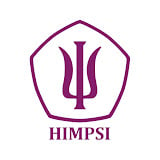DOES THE USE OF SOCIAL MEDIA AND MOTIVATIONAL SOURCES AFFECT LEARNING ACHIEVEMENT? REFLECTIONS ON THE LEARNING SYSTEM OF JUNIOR HIGH SCHOOL STUDENTS IN THE PANDEMIC PERIOD
Abstract
Full Text:
PDFReferences
Ayub, N. (2014). Effect of Intrinsic and Extrinsic Motivation on Academic Performance. Education & Social Sciences. https://www.researchgate.net/publication/255712855
Backer, L., Keer, H., Smedt, F., Merchie, E., Valcke, M. (2021). Identifying regulation profiles during computer-supported collaborative learning and examining their relations with students' performance, motivation, and self-efficacy for learning. Computers & Education, 179, 1 - 17. https://doi.org/10.1016/j.compedu.2021.104421
Baharedh, J. Matthew, A. H. Maureen, C. (2022). Using SCARF as a motivational tool to enhance students’ class performance. ScienceDirect. 100594. https://www.sciencedirect.com/science/article/abs/pii/S1472811721001439.
Bai, S., Hew, K., Sailer, M., Jia, C. (2021). From top to bottom: How positions on different types of leaderboards may affect fully online student learning performance, intrinsic motivation, and course engagement. Computers & Education, 173, 1 - 15. https://doi.org/10.1016/j.compedu.2021.104297
Behzadnia, B., Alizadeh, E., Haerens, L., Aghdasi, M. (2021). Changes in students’ goal pursuits and motivational regulations toward healthy behaviors during the pandemic: A Self-Determination Theory perspective. Psychology of Sport & Exercise, 59, 1 - 10. https://doi.org/10.1016/j.psychsport.2021.102131
Burt, J. (2004). Impact of Active Learning on Performance and Motivation in Female Emirati Students. Learning and Teaching in Higher Education: Gulf Perspectives, 1(4), 39 - 53.
Daniela, R. Roxana, A. Denilson, B. Roberto, B. Maria, C. Beata, D. Adeniyi, F. MoezAlIslam, F. Thais, F. Belinka, A. Rob, H. Fany, I. Sujita, K. Damijana, L. Florin, M. Joao, M. Bertil, P. Oliva, R. Silvia, P. Alpana, M. Cristina, M. Silvana, J. Alka, O. Md, R. Dejan, R. Sanja, T. Nina, T. Chinaza, A. Lan, U. Giada, V. Ozlem,¨ Y. Ana-Maria, Z. Aleksander, A. Higher education students' achievement emotions and their antecedents in e-learning amid COVID-19 pandemic: A multi-country survey. ScienceDirect. 0959-4752. https://www.sciencedirect.com/science/article/pii/S0959475222000500.
Dornyei, Z. (2007). Research methods in applied linguistics. Oxford university press.
Eva, B. Eva, S. Birgit, S. (2021). What successful students do: Evidence-based learning activities matter for students' performance in higher education beyond prior knowledge, motivation, and prior achievement. ScienceDirect. 102056. https://www.sciencedirect.com/science/article/abs/pii/S1041608021000935.
Filgona, J. & Okoronka, A. (2020). Motivation in Learning. Asian Journal of Education and Social Studies, 10(4). DOI: 10.9734/AJESS/2020/v10i430273
Hidayati, W. (2022). PENINGKATAN MOTIVASI BELAJAR IPA PADA MASA PANDEMI COVID-19 DENGAN “SELFVI” DI SMP NEGERI 1 SLOGOHIMO TAHUN PELAJARAN 2021/2022: INCREASING MOTIVATION TO LEARN SCIENCE DURING THE COVID-19 PANDEMIC WITH “SELFVI” AT SMP NEGERI 1 SLOGOHIMO FOR THE ACADEMIC YEAR 2021/2022. Jurnal Jaringan Penelitian Pengembangan Penerapan Inovasi Pendidikan (Jarlitbang), 63-76. https://doi.org/10.59344/jarlitbang.v8i1.15
Hosen, M., Ogbeibu, S., Giridharan, B., Cham, T., Lim, W., Paul, J. (2021). Individual motivation and social media influence on student knowledge sharing and learning performance: Evidence from an emerging economy. Computers & Education, 172, 1 - 18. https://doi.org/10.1016/j.compedu.2021.104262
Mahande, R. Malago, J. Abdal, N. Yasdin, Y. (2021). Factors affecting students’ performance in web-based learning during the COVID-19 pandemic. Emerald. https://www.emerald.com/insight/content/doi/10.1108/QAE-08-2021-0130/full/html
Maria, T. (2021). Self-regulated learning training programs enhance university students' academic performance, self-regulated learning strategies, and motivation: A meta-analysis. ScienceDirect. 0361-476X. https://www.sciencedirect.com/science/article/abs/pii/S0361476X21000357.
Motevalli, S., Perveen, A., Tresa, M. (2021). Motivating Students to Learn: An Overview of Literature in Educational Psychology. International Journal of Academic Research in Progressive Education and Development, 9(3), DOI:10.6007/IJARPED/v9-i3/7779
Mucahit, O. (2021). The effect of self-regulated programming learning on undergraduate students’ academic performance and motivation. Emerald. 1741-5659. https://www.emerald.com/insight/content/doi/10.1108/ITSE-04-2021-0074/full/html.
Ong, A., Prasetyo, Y., Chuenyindee, T., Young, M., Doma, B., Caballes, D., Centeno, R., Morfe, A., Bautista, C. (2022). Preference analysis on the online learning attributes among senior high school students during the COVID-19 pandemic: A conjoint analysis approach. Evaluation and Program Planning, 92, 1 - 9. https://doi.org/10.1016/j.evalprogplan.2022.102100
Rita, P. Eva, O. Ana, C. Catarina, M. Raquel, F. (2020). Impact of COVID-19 on undergraduate business students: a longitudinal study on academic motivation, engagement and attachment to university. https://www.emerald.com/insight/content/doi/10.1108/ARJ-09-2020-0286/full/html.
Robyn, S. Lisa, R. Shelby, T. (2021). Team effectiveness in creative problem solving: Examining the role of students’ motivational beliefs and task analyses in team performance. ScienceDirect. 1871-1871. https://www.sciencedirect.com/science/article/abs/pii/S1871187121000079.
Safi'i, A., Muttaqin, I., Sukino, Hamzah, N., Chotimah, C., Junaris, I., Rifa', M. (2021). The effect of the adversity quotient on student performance, student learning autonomy and student achievement in the COVID-19 pandemic era: evidence from Indonesia. Heliyon, 7(12), 1 - 8. https://doi.org/10.1016/j.heliyon.2021.e08510
Saumure, K., & Given, L. M. (2008). Convenience sample. The SAGE encyclopedia of qualitative research methods, 2, 124-125.
Tan, C. (2020). The Impact of COVID-19 on Students' Motivation, Community of Inquiry and Learning Performance. https://www.emerald.com/insight/content/doi/10.1108/AEDS-05-2020-0084/full/html.
Wigfield, A. & Gladstone, J. (2019). WHAT DOES EXPECTANCY-VALUE THEORY HAVE TO SAY ABOUT MOTIVATION AND ACHIEVEMENT IN TIMES OF CHANGE AND UNCERTAINTY? Motivation in Education at a Time of Global Change: Theory, Research, and Implications for Practice Advances in Motivation and Achievement, 20, 15 - 32. doi:10.1108/S0749-742320190000020002
Xiangju, M. Zhenfang, H. (2022).The relationship between student motivation and academic performance: the mediating role of online learning behavior. 0968-4883. https://www.emerald.com/insight/content/doi/10.1108/QAE-02-2022-0046/full/html.
Xie, K., Vongkulluksn, V., Lu, L., Cheng, S. (2020). A person-centered approach to examining high-school students' motivation, engagement, and academic performance. Contemporary Educational Psychology, 62, 1 - 13. https://doi.org/10.1016/j.cedpsych.2020.101877
Xuan, H. Jiaqi, Z. Shuang, H. Ruilin, Z. Shan, S. Bingsheng, L. (2022). E-learning intention of students with anxiety: Evidence from the first wave of COVID-19 pandemic in China. ScienceDirect. 0165-0327. https://www.sciencedirect.com/science/article/pii/S0165032722004657.
DOI: http://dx.doi.org/10.22441/biopsikososial.v8i2.30354
Refbacks
- There are currently no refbacks.
Copyright (c) 2024 Biopsikososial: Jurnal Ilmiah Psikologi Fakultas Psikologi Universitas Mercubuana Jakarta
JBUMBand its articles is licensed under a Creative Commons Attribution-ShareAlike 4.0 International License.
Tim Editorial Office
JBUMB
Fakultas Psikologi, Universitas Mercu Buana
Jalan Meruya Selatan No. 1, Kembangan, Jakarta Barat, 11650, Indonesia
Phone: +6281318855243
Email: [email protected]
Website: https://publikasi.mercubuana.ac.id/index.php/biopsikososial/index

















